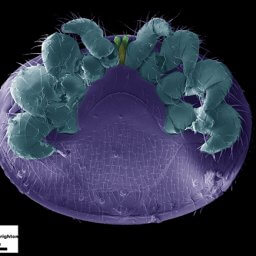
UMass Amherst research shows less-frequent mowing may help suburban bees
AMHERST, Mass. - Homeowners concerned about the decline of bees, butterflies and other pollinating insects need look no further than their own back yards, says ecologist Susannah Lerman at the University of Massachusetts Amherst and the USDA Forest Service. In new research, she and colleagues suggest that homeowners can help support …

Honey bee larvae develop into queen bees only when they are fed large quantities of royal jelly. But royal jelly does more than determine whether a larva becomes a queen: it also keeps her safely anchored to the roof of the queen cell in which she develops. Research published in Current Biology on March 15 explains the role that the …

Lack of information on the effects of all pesticide ingredients makes them appear safer than they are — potentially causing serious harm to people and the environment.
New regulations are needed to protect people and the environment from toxic pesticide ingredients that are not currently subject to safety assessments. This is the conclusion of the first comprehensive review of gaps in …

The magnified photographs of the pinhead-sized mite, aptly named Varroa destructor, were captured by Dr. Jonathan Salvage of the University of Brighton (UK), using a state-of-the-art scanning electron microscope (SEM).
Dr. Salvage, a Research Fellow in the University’s School of Pharmacy and Biomolecular Sciences, has been working with Adam Leitch, a Master Beekeeper, on both a study of plant pollen that …



